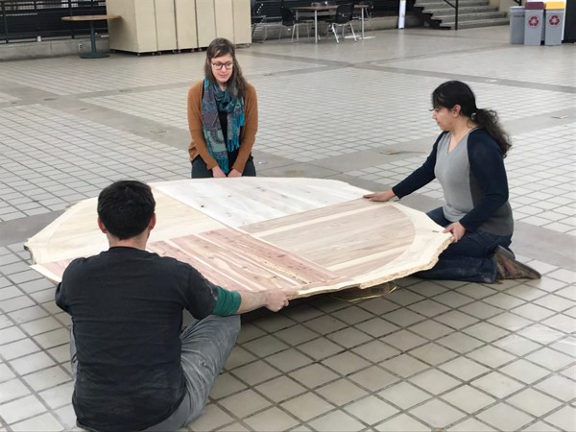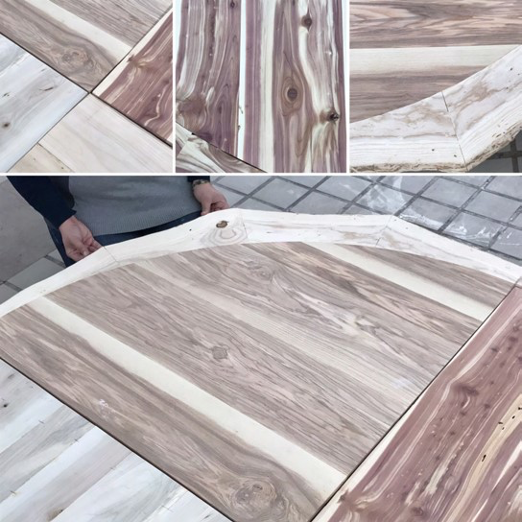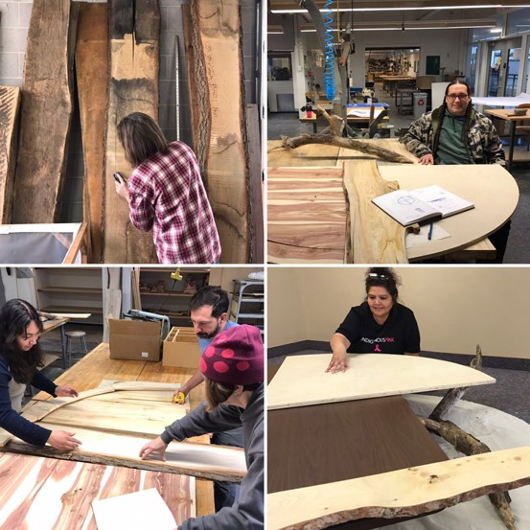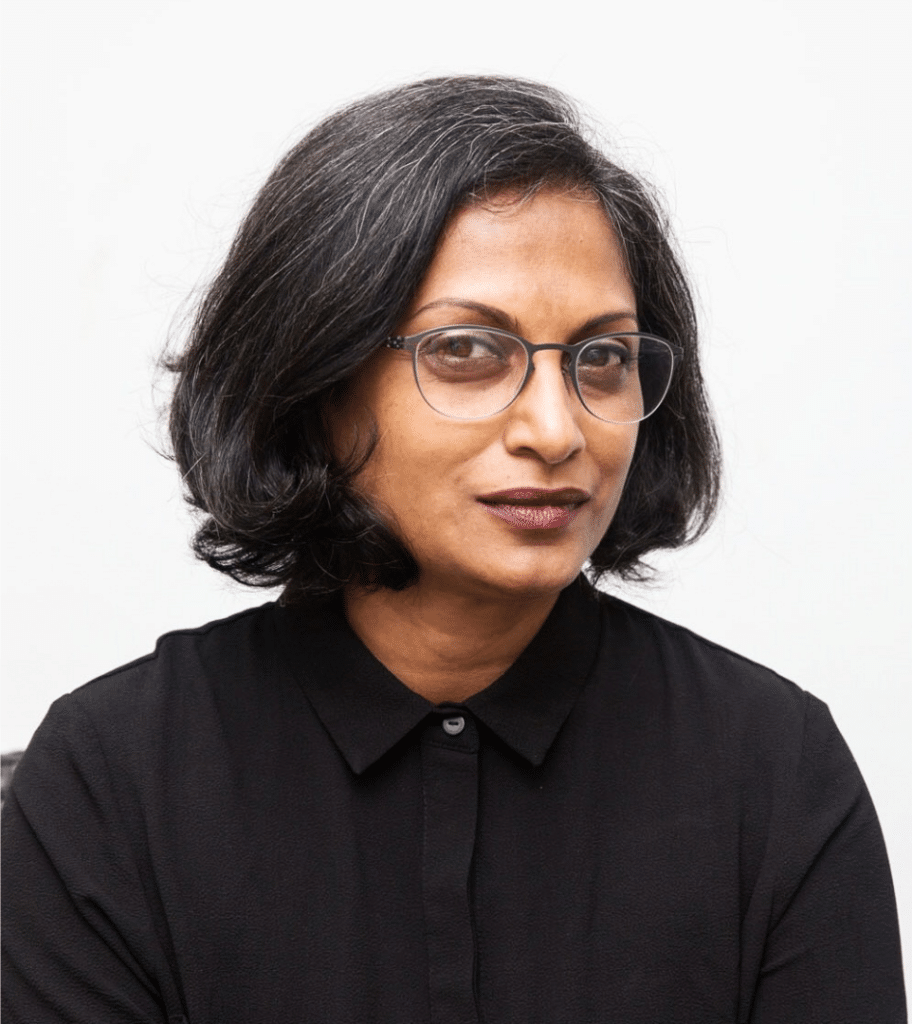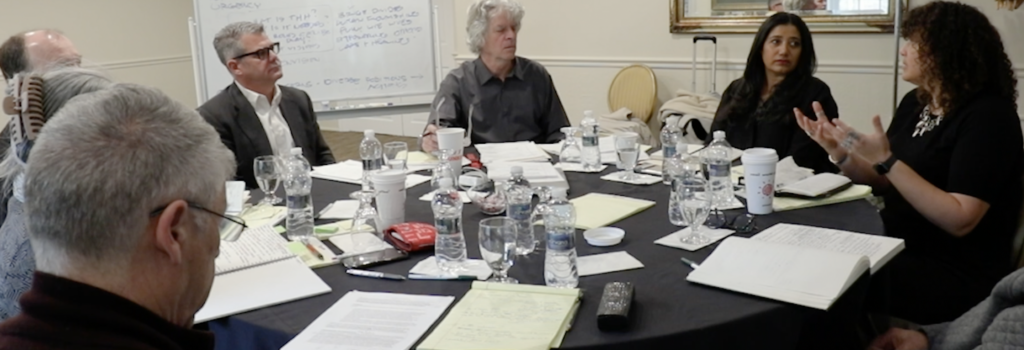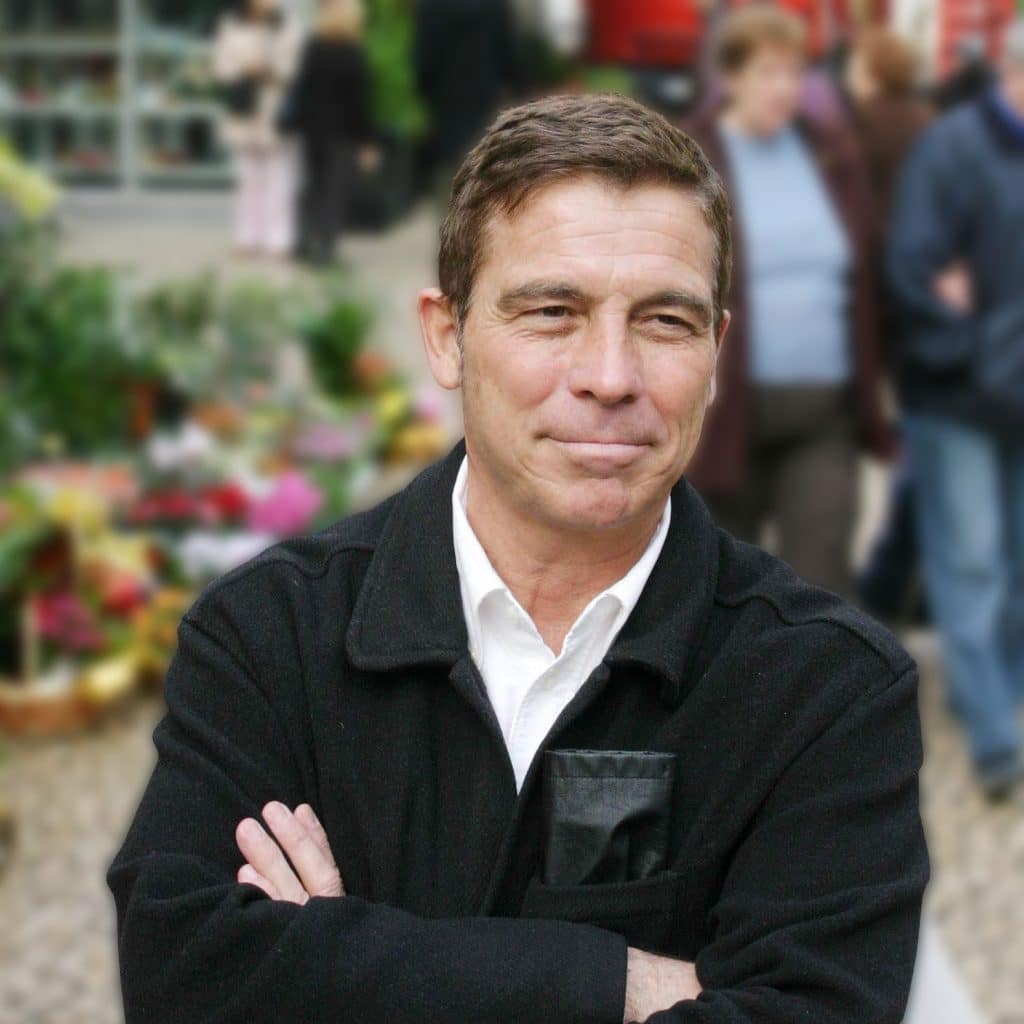Rebecca Krinke, University of Minnesota
I am a core member of Healing Place Collaborative, an indigenous (Dakota) led group of artists, designers, and other professionals who share an interest in exploring how Minnesota (Dakota Homeland) is a place of healing and a place in need of healing. We have been meeting for over a year, learning of each other’s work, with a focus on Dakota worldview, language, and relationship to place.
Through the Healing Place Collaborative meetings, we learned of a technique called “language table” that is used in reviving endangered languages, and Dakota is an endangered language. To be clear, “language table” in this context is a PROCESS, not an actual table; it refers to informal gatherings where participants learn vocabulary from, and discuss language with, Native language speakers. An important element of this is the discussion of cultural relationships embodied in the language.
When I heard of this concept, I found myself saying in a meeting, “I would be interested in building an actual, unique table, to be our own language table.” From that, a grant was secured to allow this idea to move forward. The table is nearing completing at this writing. My presentation will highlight the collaborative process, the learning sessions, and the direction from Dakota language speakers and leaders. My presentation will discuss the materials and the methods used to build the Dakota Language Table, and why.
The table embodies specific attitudes and approaches to spirituality, materials, craft, and making, including relationship to the four directions, the circle, the earth, sitting on the ground, trees, and the sky. Four types of wood are being used for specific reasons. No metal is being used, as Dakota people traditionally did not have metal. The table is being made to be easily portable so that it can be transported, from outdoors sites to indoor settings.
The Dakota Language Table will be used by members of the Healing Place Collaborative, the Dakota Language Society, and the larger public as a portable focal point (to both indoor and outdoor sites) for learning about Dakota relationships to place, and to places of historical significance to Dakota people.
